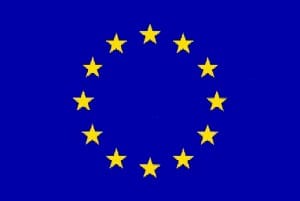Remember, last spring… The months of April and May 2005 were filled with the colors of Europe as the referendum on the constitutional treaty approached. A burst of European passion had swept across the country. Books on the topic (No to the Constitution, Europe: The Betrayal of the Elites, Europe is Off Course, Dare to Say No, The Consequences of No, Yes: A Plea for the European Constitution) all enjoyed great success, just like the televised debates. The French showed an interest in Europe and its future. This enthusiasm was symbolized by massive participation in the May 29 vote (70%). The “No” prevailed. And since then? Not much, and that’s an understatement. On May 30, 2005, everything seemed forgotten, devoid of passion as if the construction of the European Union was merely a momentary news event. The media, politicians, and citizens moved on to other things. The proponents of “Yes” did not want to restart a debate that had led them to a bitter defeat, and the proponents of “No,” once victorious, moved on to other battles. Europe is not a soccer match. And there will never be three final whistles to signify the end of Europe.
The only action taken by the President of the Republic was to replace Prime Minister Jean-Pierre Raffarin with Dominique de Villepin. Jean-Pierre Raffarin had to bear the full weight of the referendum’s failure. A year later, polls show that the French have not changed their minds about this constitutional treaty.
Not talking about it is to despise it, to forget it. Yet, the Union of European Nations is sealed. They started with six in 1957 with the Treaty of Rome and are now 25. Why this rejection? Why this disaffection? Several explanations. Firstly, in times of crisis, the French turn inward. Losing confidence and hope, goals are reduced in scope and time. Brussels then seems very far away. Centuries of wars killing Europeans have also played a part.
The establishment of a union of European nations has brought peace. That is undeniable. To make people love Europe, we need to talk about what it brings, not just focus on its shortcomings or flaws. Brussels is wrongly or rightly described as a nest of technocrats with ultra-liberal decisions. The Belgian and European capital has become the ideal excuse for many politicians. The “It’s not my fault, it’s Brussels” is easily pronounced.
The media can be criticized. They maintain this distrust. We, the media, do not talk about Europe, or very rarely do. The work of European parliamentarians is boring. But there are very interesting topics outside of Brussels’ technocracy such as student exchanges, business partnerships. Europe and the Union of its people should not be made solely by politicians.
Europe used to make people dream. Not anymore. The campaign for the May 29 referendum succeeded in engaging the French. Partly because it was conducted by politicians in an educational manner, but also because by asking for the citizens’ opinion, Brussels came to infiltrate homes, cafes, universities, businesses. Dialogue leads to dialogue. Nice Première reopens this dialogue with a series of interviews dedicated to this theme.


